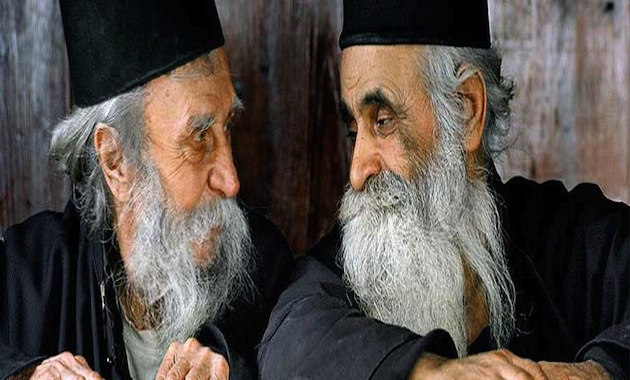
If, out of love for God and a life of virtue, people aren’t overly concerned about themselves and believe that God will look after them, this trust in God’s providence is both real and sensible.

If, out of love for God and a life of virtue, people aren’t overly concerned about themselves and believe that God will look after them, this trust in God’s providence is both real and sensible.

‘He became angry and did not want to go in’ The parable of the Prodigal Son, which is read in churches today, is held by commentators to be a pearl among the parables, or the ‘Gospel within the Gospel’. Some call it the parable of the Elder Son. Indeed, the attitude of the elder son when he returns and is told of the return of his younger brother is revealing. He didn’t want to go in and criticized his father for- supposedly- being unfair to him. The charge was based on the fact that he worked day and night and wasn’t rewarded commensurately, while the prodigal son spent his portion of the inheritance on harlots and, on his return was afforded ...
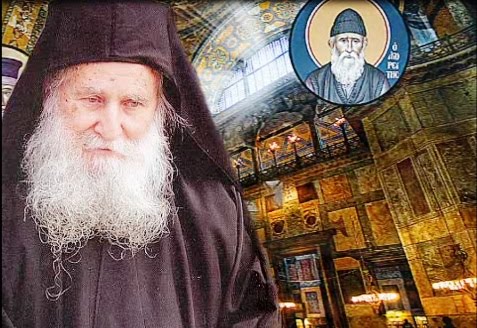
The Lord always seeks to find the proper intention in man for it is said that ‘Each one must give as he has decided in his heart, not reluctantly or under compulsion, for God loves a cheerful giver’ (2 Corinthians, 9, 7). He also urges: ‘Let your reasonableness be known to everyone’ (Philippians 4, 5) which has almost the same meaning. Our Church celebrates tomorrow the memory of St Agatha. Even though she was a young girl, she fought the good struggle so fiercely that she surprised even the Heavens so much that after her martyrdom an angel wrote on her tomb: ‘A voluntarily pious mind honored by the Lord, delivers the country’ ( Νούς όσιος αυτοπροαίρετος, τιμή εκ Θεού ...
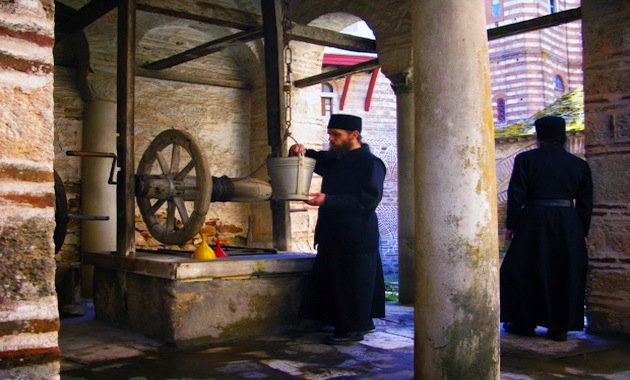
If you’re bound, you can’t run. Nor is a mind that works like a slave for some passion or other capable of real prayer. Because it’s dragged here and there by its impassioned thoughts and can’t be still. You’ll never manage to pray purely if you’re involved with material things and are upset over continuous commitments. Because prayer means freedom from concern.

Greek Church music is a taste that many of those not born in Greece ever acquire. There are, however, some hymns which appeal more directly to non-Greek ears and this is one of them. In this version, sung by the nuns of the Holy Monastery of the Annunciation, Ormylia, Halkidiki, some of the verses have been omitted. The translation follows the abbreviated version used on this recording. Pure Virgin Mother, that which has been completed in you is incomprehensible to angels and mortals alike. Symeon the Elder cradles the Maker of the Law and Master of all. Wishing to save Adam, the Creator dwelt in the womb of the Pure Virgin. The whole race of mortals blesses you, Pure One, and glorifies you in ...

The joy felt by spiritual people isn’t the same as the worldly joy sought by so many people today. Let’s not confuse things. Did the Saints have the kind of joy that we’re seeking? Did Our Lady? Did Christ laugh? What Saint went through this life without pain? What Saint had the kind of joy so many Christians in our day and age are looking for? For they don’t want to hear anything unpleasant, so that they’re not upset and don’t lose their calm and composure. If, in order to be happy, I want not to be worried, and if, in order to be meek, I want not to lose my peace of mind, then I’m indifferent! Spiritual forbearance is ...

In one of the hymns at the Vespers of the Reception of the Lord, the words ‘Now, Lord, you let your servant depart in peace’ which were addressed to God by the righteous Symeon when he took Christ into his arms, are rendered by ‘Now I am released, for I have seen my saviour’. In the person of the infant he was holding, Symeon saw his peace and release. The feeling of peace is the sense of God’s proximity. Peace brings people closer to God and to each other. This is clear from the etymology of the word which goes back, through Latin, to a Primitive Indo-European root, *pag, meaning ‘to bind together’, as in the related word ‘pact’. In particular, ...

Love, love the Lord! And never forget: the proof of your love for Him is the observance of His commandments. The beginning of your love for Him is the humility of the Publican. The fulfilment of your love is victory over the demonic passions and the purification of your heart. The result of your love is the residing in your heart of Him Who said: ‘Blessed are the pure in heart, for they shall see God’ (Matt. 5, 8).
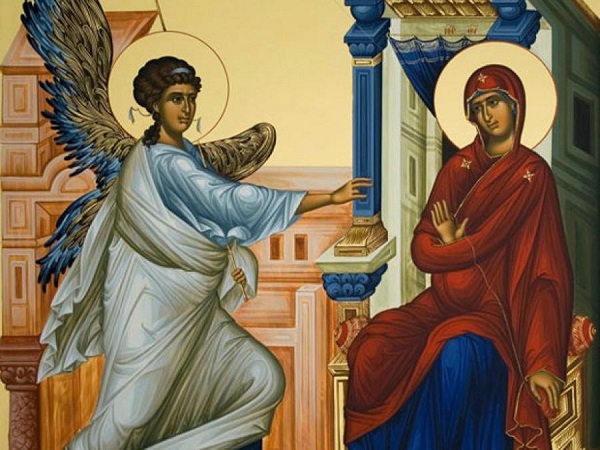
“Therefore the Lord Himself will give you a sign. Behold, the virgin shall conceive and bear a son, and shall call His name Emmanuel.” (Isaiah 7:14) The great prophet of God Isaiah prophesied this proclamation of the salvation of God’s creation some eight centuries before the birth of Jesus Christ. At first glance, in the realm of the natural order of things, to read that a virgin birth is even possible is to speak of madness or at the very least statistical improbability. Yet, this Scripture may very well be the most crucial in all of the Old Testament for it summarizes the need of Israel and Judah for a Savior and a Redeemer to stave off their unfaithfulness while offering ...
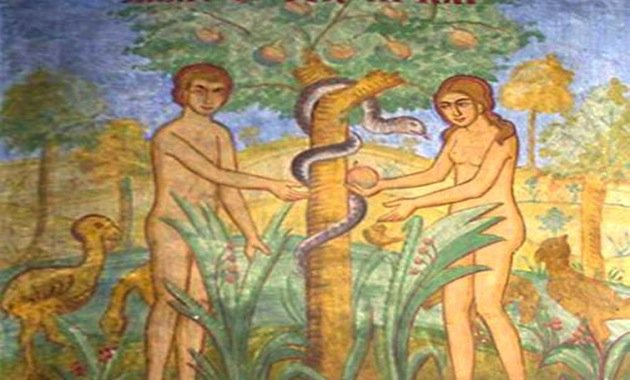
Fasting is a commandment that was given for human nature to observe from the beginning and the First-Created fell from there.
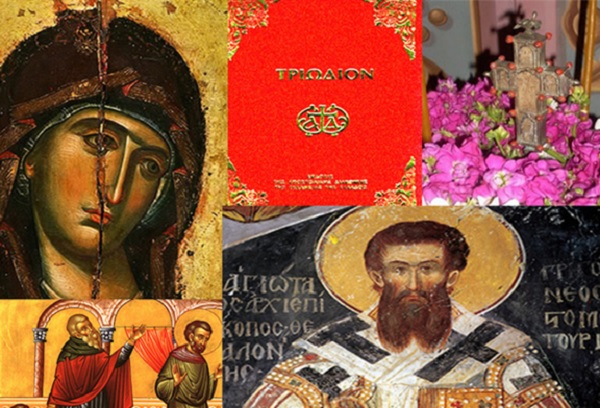
We’re entering the Triodio, the period of contrition in the liturgical year during which hymns are sung which are very deep and powerful. The hymns of the Triodio reveal the dread mysteries and the conditions for eternal life. It’s a genuine and true study of death which leads to the Resurrection and not to the bright light at the end of an imaginary tunnel. It’s a period full of sanctified figures, such as John of the Ladder and Mary the Egyptian, and is adorned with the Salutations to Our Lady, culminating in the hymns of Great Week. Then every person in pain is soothed. Their lost powers are restored and they move onwards to the Resurrection. Recently, a discussion has opened ...

Don’t be sad, don’t grieve more than you should, because then you’re giving the opportunity to the evil one to strike you with great force…
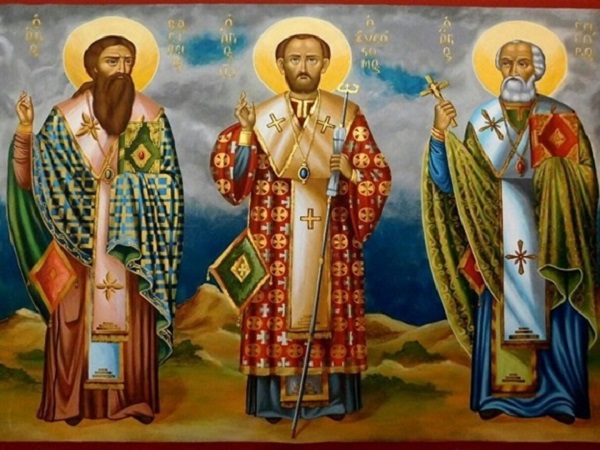
‘The Impudence of the Heresies is Defeated’ The phenomenon of atheism arose in the West and became a world-wide movement for which Western civilization paid dearly in the 20th century. Atheism began within the Western Church as a reaction on the part of learned men to the arbitrary nature and harshness of that Church (the Inquisition and so on). In the East, there was no such problem as regards the relationship between scholars and the Church, in large part due to the three great hierarchs whom we celebrate today. a. They were men of learning. They were scholarly hierarchs with years of study behind them and were brilliant academics. Basil the Great had studied at the University of Athens in their time. ...

We have to respect other people, whether they make mistakes or not. We shouldn’t destroy them, shouldn’t wound them and berate them. Because what love requires is this: to exculpate them, to love them and to take all the blame ourselves.
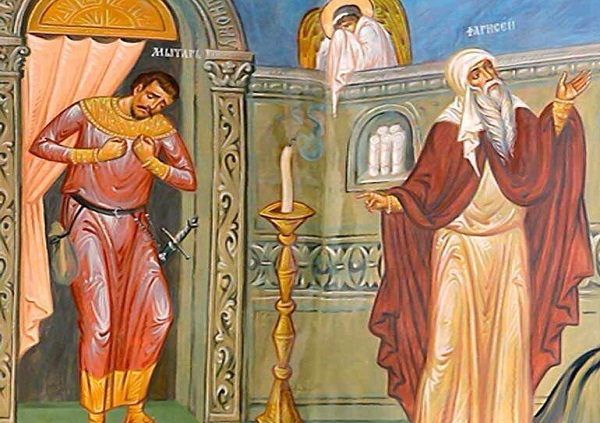
It’s an oft-repeated refrain that, over the last centuries, people have been seduced by philosophical theories, economic projects and social systems, have forgotten God and have claimed independence from Him. Beguiled by promises of earthly happiness and devoted to the pursuit of material goods, we have neither the strength nor the inclination to raise our heads from the dust of our mortal nature and to gaze upon our Heavenly Father. Even when we’re trapped in the continuing morass of multiple problems and we hear others stating with authority that the crisis isn’t economic, but principally one of morality and spirituality, we refuse in practice to transform this acceptance into actions which would bring about our spiritual resurrection and halt the ...
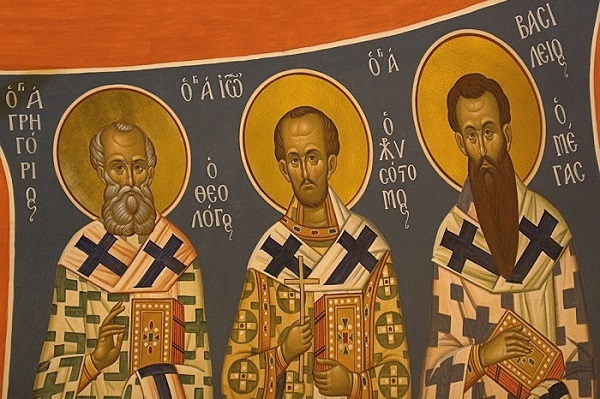
Our history here in Canada spans over a century. We left our homeland, carrying with us the eternal values and ideals of Hellas. We promised to preserve our Hellenic heritage, along with our Orthodox faith. It is useful to pause for a moment and honestly examine the pressing issue of Greek Orthodox education in Canada. As a rule, our forbearers kept their promises. They remembered and honoured the mother’s farewell curse conveyed by the verse: “But if you deny your country, which everyone adores, may your life be filled, wherever you go, with thorns and weeds.” So, what has happened in the course of the over one hundred year history of Hellenism in Canada? Unfortunately, Hellenic traditions and customs have eroded back in ...
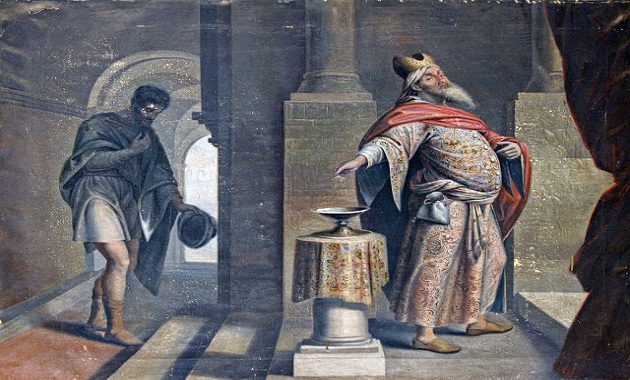
In its desire to prepare us for the great and bright battle of the virtues, Holy and Great Lent, the Church, has adopted a period of preparation, that of the Triodion. This period starts with tomorrow’s Sunday, with an important parable related by our Lord: the Publican and the Pharisee. From the Church of Saviour, Kalymnos The parable says that two people went to the temple to pray. Two went, but only one fulfilled his aim: the Publican. The sinner, the wretch, the good-for-nothing. He who was so ashamed of his actions that he didn’t dare even raise his eyes. He who asked for no more than the mercy of God. And he achieved it. With remorse and humility, he gained ...

People need humility and the fear of God more than they need to breathe. Two wrongs don’t make a right, so if somebody does you wrong, return it with good. In this way, your good action expunges their wrongdoing.